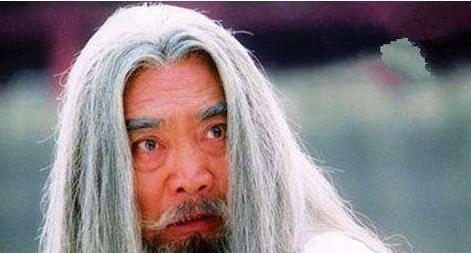Wu Zixu was a famous politician and military figure during the Spring and Autumn Period. He was originally from the State of Chu, but because his father Wu Hao was framed by Fei Wuji's rumors, he was killed by King Chu Ping, so Wu Zixu fled to the State of Wu and threw himself into the account of the later King of Wu, actively helping the State of Wu to strengthen its armaments and wait for the opportunity to avenge his father.

In 516 BC, King Chuping fell ill and died. But Wu Zixu did not forget hatred because of this. In 506 BC, king Lu of Wu personally took command, with Wu Zixu as his general, and led the Wu army deep into the Chu state and defeated the main force of the Chu army at Baiju (in present-day Macheng, Hubei Province). Soon, the Wu army captured the capital of the Chu state, Yingdu. After Wu Zixu entered the capital, the first thing he did was to find the tomb of King Chuping, dig up the tomb and whip the corpse for three hundred.
After 1195 years of history, another person reproduced this story of Wu Zixu. This man's name was Wang Zhen [bān], and his father was Wang Shengbao, a famous Liang general of the Southern Dynasty. He and chen baxian, the founding emperor of the later Chen Dynasty, had a major battle at Jiankang City because of their political disagreements, and finally they were defeated and killed. Because Wang Yan was in Guanzhong at that time, he was grieved after hearing that his father had been killed, and he was determined to take revenge.
In the eighth year of the Sui Kai Emperor (588 AD), Emperor Yang Jian of Sui sent Yang Guang, the King of Jin, to lead 500,000 troops to launch a war to destroy Chen's unification, and Wang Yan took the initiative to ask to participate in the war. Since the whole campaign went very smoothly, in February of the following year, Gangnam was basically pacified. Wang Ye secretly gathered his father's old ministry and got more than a thousand people. In the face of these father's old subordinates, Wang Yan did not speak, but only cried bitterly in front of them. One of them understood Wang Yan's intentions and told him that although he did not personally kill Chen Baxian to avenge his father, he could dig up Chen Baxian's grave and destroy his body, which was also considered to be revenge for his father. So they excavated the mausoleum that night, opened the coffin, pulled out Chen Baxian's body, burned it, and Wang Yan ate the ashes of his enemies and the water.
Afterwards, Wang Yan knew that he had violated the laws of the land by privately avenging his father, so he asked Yang Guang, the king of Jin, for his guilt, and Yang Guang reported the matter to Emperor Wen of Sui. However, Emperor Wen of Sui remembered that he was avenging his father, which was the "way of filial piety", and did not punish the king.
However, when Wang Zhihou was discussing the reward for meritorious deeds, there was a division based on his battle merits, "add pillars to the country, and give five thousand pieces." However, Wang Yan resolutely resigned: "I rely on the strength of the country to avenge my personal vendetta, and my original intention is not for the country, and I cannot accept the reward of the state." Emperor Wen of Sui agreed to him. Wang Zhi later assassinated the history of Baidai Prefecture, and the official reputation was good, and finally died in office, at the age of fifty-two.